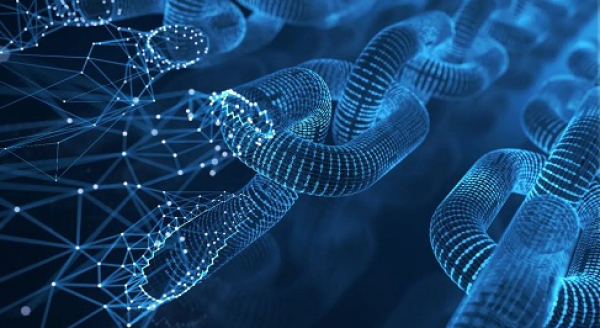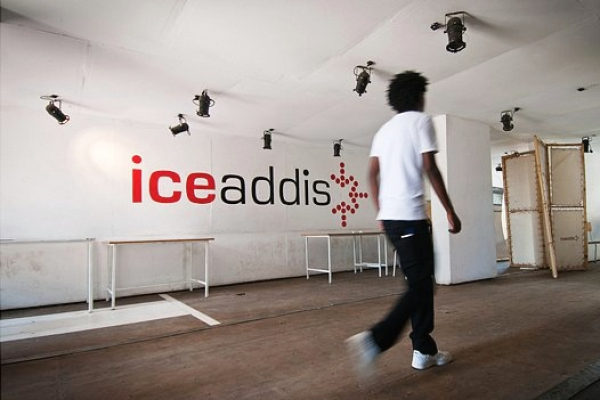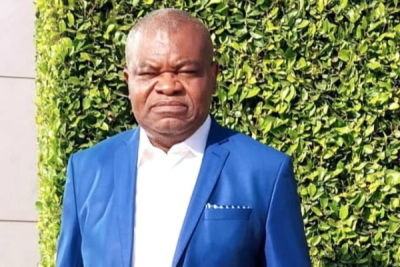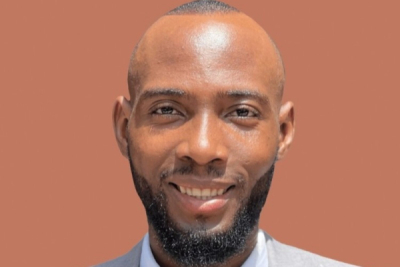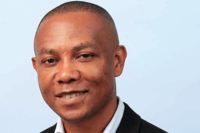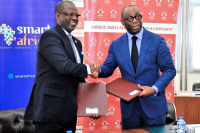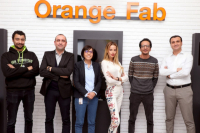A growing number of African startups are specializing in blockchain, but they face challenges like a lack of funding, limited access to training, and widespread misconceptions associating the technology with fraud.
The majority of African blockchain startup founders believe there is no government support for blockchain in their countries, according to the “Africa Blockchain Report 2023” published in April 2023 by the think tank Africa Blockchain Institute and the non-profit Algorand Foundation.
The report is based on a survey and in-depth interviews with stakeholders in four African countries. 80.5% of the respondents reported a lack of government support for the development of this technology, whose application areas and use cases are extremely varied. Referring to the support they need, these players cited funding (58.5%), training (43.9%), entrepreneurial mentoring (29.3%), acceleration programs (26.8%), market access support (22%), and incubation programs (17.1%), among others.
The report confirms that the main challenge facing start-ups in Africa remains the lack of financing (56.1%). Insufficient access to training programs and widespread misconceptions about blockchain technology tied for second place (39%), ahead of an inadequate regulatory framework (31.7%) and a lack of incubators (17.1%).
According to the entrepreneurs surveyed, widespread misconceptions about blockchain in Africa stem from the fact that the majority of the population thinks the technology is only about crypto-currencies, and often associates it with crypto-related scams and financial fraud. Despite the lack of government support, African start-ups active in this segment are managing to develop innovative solutions.
The blockchain applications most developed by those covered by the survey are smart contracts (24.4%), identity management systems (22%), cross-border payment solutions (17.1%), cryptocurrency exchange platforms (14.6%), the creation of non-fungible tokens/NFTs (14.6%), supply chain and logistics management systems (12.2%). Other applications include advertising and marketing, anti-money laundering, and electronic voting.
Also, 58.5% of developers surveyed have been working on their applications for less than a year, while 24.4% have been working on them for more than five years. This shows that the adoption of blockchain innovations is still in its infancy in Africa, particularly when it comes to the development of use cases with a direct impact on individuals, businesses, and society as a whole. The report notes in this context that use cases for blockchain technology are much more varied in English-speaking Africa than in French-speaking Africa, where the majority of start-ups focus on the finance segment.
The Africa Blockchain Institute also points out that the majority of blockchain start-ups on the continent are still in the early stages of development. 43.9% of them are in the ideation stage and 29.3% are in the seed phase. 9.8% of these entities are already well-established and profitable, while only 2.3% are in the scaling phase.
iceaddis is a major player that is advancing tech innovation in Ethiopia. As a dynamic innovation hub, it offers a collaborative workspace, incubation programs, and a wealth of resources to support the country's entrepreneurs and innovators.
iceaddis is an Addis Ababa-based innovation and entrepreneurship center that is key in strengthening Ethiopia's tech ecosystem. It was founded in 2011 by three former GIZ (German Development Agency) staff in Ethiopia, namely Markos Lemma, Florian Manderscheid, and Oliver Petzoldt,
The heart of its ecosystem lies in its co-working space, an open environment where entrepreneurs, developers, and creatives can come together, share ideas, and collaborate on joint projects. The space fosters the creation of strong networks and stimulates entrepreneurship by offering practical support and mentoring opportunities.
In addition to the coworking space, iceaddis offers incubation programs to help start-ups turn their ideas into successful businesses. These programs offer personalized coaching, access to experienced mentors, and funding opportunities to help entrepreneurs get their businesses off the ground.
Its flagship program is ice180, a 180-day support program designed to enable high-potential entrepreneurs to start their businesses. The program aims to make startups investment-ready “with entrepreneurial knowledge skills, and a strong networking.”
iceaddis is also committed to defending the interests of technology start-ups. As one of the founding members of the i4policy community, it advocates innovative companies and start-up communities to policy-makers and regulators. The innovation center regularly organizes conferences, competitions, and hackathons, enabling participants to share knowledge, develop skills, win awards, and foster collaboration.
To date, it has supported over 190 entrepreneurs, accelerated 35 startups, and incubated 54 companies. It has also organized over 350 events, bootcamps, and hackathons in Ethiopia. The center works with local and international organizations as advisors on youth programs and joint project management in various sectors.
Melchior Koba
South Africa remains the best African start-up ecosystem, ahead of Mauritius, Kenya, Nigeria, and Egypt. Lagos is the only African city in the Top 100 of "start-up friendly" cities worldwide.
Fifteen African countries feature in the top 100 ecosystems conducive to the emergence and development of ecosystems worldwide, according to a report published by startup ecosystem map last May 30. To establish this ranking, the research firm focused on more than 30 indicators divided into three main categories.
The first category is quantity, which uses indicators like the number of start-ups, coworking spaces, accelerators, start-up-related meetings, etc. The second is quality, using indicators like total investment in start-ups, number, and size of unicorns, presence of R&D centers set up by major international technology companies, the presence of subsidiaries of multinationals, etc. The last category is the business environment, which is measured using indicators like Internet speed, R&D spending, tax rates applied to start-ups, availability of various technological services such as electronic payment and cryptocurrencies, level of corruption, etc.
The report, entitled "Global Startup Ecosystem Index 2023", reveals that South Africa (53rd in the world) has the best startup ecosystem in Africa, despite falling four places in the global ranking compared with 2022. The Republic of Mauritius (61st worldwide) occupies second place in Africa, ahead of Kenya (62nd worldwide), Nigeria (64th worldwide), and Egypt (67th worldwide).
They are followed by Ghana, Cape Verde, Senegal, Namibia, and Tunisia, closing the African top 10. The report also points out that five African countries have improved their overall ranking. Mauritius and Senegal made the strongest progress compared with the 2022 edition, gaining 10 places each. The two countries entered the Top 100 best start-up ecosystems in 2021 and 2022 respectively.
The biggest declines were recorded by Morocco, which dropped 14 places compared with 2022 to 93rd position worldwide this year, and Rwanda (-11 places). Uganda is the only African country to re-enter the index in 2023 after it dropped out of it in 2022.
The report also ranked 1,000 startup cities worldwide. Lagos (82nd worldwide) is the only African city in the Top 100. The Nigerian economic hub owes its ranking to its highly dynamic ecosystem, with over 400 start-ups, including unicorns Jumia and Flutterwave, and 35 active incubators.
The best-represented countries in the ranking of the 1,000 cities with the best start-up ecosystems in the world are Nigeria (5 cities), South Africa (4 cities), and Kenya (2 cities). Victoria (Seychelles) made the greatest progress, moving up 592 places to the 232nd position. It was followed by Port-Louis (+269), Dakar (+155), Tunis (+57), Cairo (+36), and Accra (+28).
The first edition of the digital summit GITEX Africa was held from May 31 to June 2 in Marrakech, Morocco. During the technology trade show, which brought together tech companies and start-ups, government delegations, global investors, international speakers, and tens of thousands of technology executives from more than 100 countries, We Are Tech Africa spoke with Freddy Mpinda, advisor to the Congolese minister in charge of the Digital Sector.
WAT: President Félix Tshisekedi expressed his ambition to leverage digital technologies to improve integration, good governance, economic growth, and social progress. What are the main projects underway to achieve this?
Freddy Mpinda: Indeed, the DRC has undergone a decisive digital turning point since the arrival of President Tshisekedi, who is advancing his vision to leverage digital technologies for integration, economic growth, and good governance. This vision is set out in the National Digital Plan (PNN) Horizon 2025 and implemented in a government program called the Digital Transformation Program (PTNRDC), implemented by the Ministry of Digital Affairs. The PTNRDC focuses on 8 priority projects (the digital code, e-Gouv (e-Citoyen, e-Cadastre), National Data Center, Government Intranet, Electronic Payment Aggregator, Tele-medical expertise, e-Education).
Currently, we have several projects underway. We have infrastructure projects because we're a big country and we want to connect as many Congolese as possible. We've expressed the need for 50,000 km of fiber optics because recent studies have shown that over 40 million of the country's 100 million people are not connected to anything. After all, mobile operators are set up in economically profitable regions, and rural areas are sometimes left out. So, we need fiber optics to connect as many Congolese as possible. Apart from this, we have e-governance projects, projects to teach digital skills to the youth and to support entrepreneurs, build data centers, deploy the national bar-coding platform that generates codes with the national prefix (605), and so on… So, projects are ongoing and we are trying to implement them with several partners.
WAT: As you mentioned earlier, DRC has a 2025 digital plan. Can you tell us the goals of that plan and what the government hopes to achieve by that timeline?
FM: Well, the plan has a deadline, which is 2025, because we’ve learned from other African countries and we wanted a time-bound plan. If you go through it, you will notice that it mentions that in 2025, it will be reviewed, amended, and relaunched. We're well aware that the projects we're working on, particularly infrastructure, can’t necessarily be completed by 2025. Nevertheless, we decided to launch as many projects as possible and take stock in 2025. So 2025 will be an evaluation phase. We'll see what has worked, and then we'll roll out a new plan. The Ministry of Digital Affairs has already achieved a great deal in a very short period, notably the adoption of the Digital Code, digital norms and standards in the DRC, the Startup Act (a law dedicated to start-ups, with a wealth of incentives and opportunities, editor's note), and the recruitment of career civil servants to the General Secretariat for Digital Affairs.
WAT: Over the past two years, your country has signed several partnerships with Estonia and China. What has the DRC gained from these partners, and what has it given in return?
FM: Well, that's easy to say. What did the DRC give in return? The DRC has given everything in return and provided the main inputs for the digital revolution. We hold almost 60% of the world's raw cobalt, Coltan, which is used in cell phones, and Niobium... We have all these metals. The real question is what the DRC is going to get in return because we've been contributing our minerals to this fourth revolution for many years now. And that's why our policy is to be open. We discuss as much with the Chinese, the Estonians, the Emiratis, and also with our African partners like the South Africans, the Zambians, and so on. What we need is to transform locally some of our raw materials, which today are just potential wealth-generating sources but are not yet generating real wealth. We have joint projects with African countries and countries around the world, but projects that must be profitable for the DRC, because, over the past 60 years, we've been giving away our raw materials and receiving very little. As far as digital transformation is concerned, feedback is vital for us and our partners. There's no need to reinvent the digital sector.
WAT: What does the DRC stand to gain from digital development?
FM: Digital technologies should be seen as a tool. The proof is that [the Ministry of Digital Affairs] is a transversal ministry, in other words, one that serves everyone. Today, at the GITEX Africa panel, I pointed out that the priority is to solve Africa's main problems. Digital technology is a powerful tool for solving our problems. Our top priority, as the Covid-19 crisis has shown, is to produce our food as close as possible to consumers. So for us, agriculture is a priority. The second priority is education. In March and April 2020, we found ourselves with 18 million Congolese schoolchildren forced to stay at home, with no possibility of learning remotely. So for us, digital technology must enable distance learning. The same goes for healthcare. We found ourselves with a pandemic overnight, and we had to find respirators, masks, and so on. Digital technology must help us improve our health strategy, particularly our vaccination strategy. We need to know who's been vaccinated and who hasn't. We're a fortunate country. Fortunately, we are a country that has already experienced a pandemic before, Ebola. Digital technology must be at the service of health and epidemiological surveillance. Agriculture, education, and health are our priorities.
WAT: In short, you mean that digital technologies are tools to enable DRC to achieve its sustainable development goals and more. But do you have the digital skills needed to keep up?
FM: when you read the plan, you will notice that it is based on four pillars namely infrastructure, content, applications, and governance and regulation. We do have a fifth pillar, which is education, but we decided that it couldn’t be a pillar by itself because for instance, to develop infrastructure, we need education. We need engineers, we need technicians, and so on. In terms of content, those who will develop applications, i.e. coders and so on, need education. In terms of application use, those who will be working to enable the State to become increasingly digital need education. Civil servants need to be brought up to speed. Governance regulation needs education. So education is everywhere. In reality, our plan is based on four apparent pillars and one invisible pillar, which is education. The Minister for the Digital Economy has made the development of digital skills a major focus of his action. The development of Congolese digital skills is a recurring theme in the latest memorandum of understanding signed in China by the two digital ministers.
Interview by Adoni Conrad Quenum
He is an outstanding software developer with over 14 years of experience in building software and web applications. In his home country, Tanzania, he set up an online bus ticket booking application.
Abraham Itule (photo) is a Tanzanian entrepreneur and computer scientist with a degree in Information Technology from Manchester University in 2012. In 2022, he founded Safiri App, a mobile app that allows users to buy bus tickets in Tanzania.
Safiri App connects transport operators and travelers, enabling customers to buy their travel tickets from the comfort of their home, office... It also provides travelers with real-time updates on the location of the means of transport and other transit information.
Safiri App users can also entrust parcels or goods to be conveyed by transport companies registered on the platform. For bus operators, the company offers a simple ticketing system that integrates mobile money and SMS.
Recently, the mobile app has been selected among the 12 African start-ups to attend the Africa Tech Summit in London on June 23. On this occasion, Abraham Itule will be speaking about public transport and logistics in Africa.
Safiri app was launched through Itule Limited, Abraham Itule’s software company. Besides his duties as the CEO of that software company, the tech entrepreneur is also the CTO of UK-based Hexis, which uses artificial intelligence to create a personalized nutrition plan to optimize the performance of athletes and coaches.
His professional career began in 2009 with Zippro System Ltd, where he worked as a programmer in the UK. Since then, he has worked as a developer, both back-end and front-end, at several institutions, including The Virtu Group, Spindrift, IBM, Cambridge University Press, Santander UK, and Instant Access Technologies. In 2021, he was a senior full-stack engineer at UK financial technology company Akrod.
Melchior Koba
Cassava is one of the most widely consumed foods in sub-Saharan Africa. It is easy to cultivate and can be processed into many things. It nevertheless faces threats that can be overcome with technology.
On Tuesday, June 6, smart farm management software provider FarmERP announced the deployment of its FarmGyan platform based on AI, machine learning (ML), and computer vision in Nigeria.
According to the provider’s release, the platform aims to boost cassava cultivation in the country to improve productivity, profitability, and predictability.
"FarmERP [...] brings a specialized focus on helping Cassava farmers by extending the crop life [...] in Cassava plantations up by 40% through its tech-enabled platform," the release said.
Nigeria's cassava industry is the largest in Africa. For several years, the country has been the world's leading producer of cassava, accounting for 21% of global output. However, cassava plantations face several challenges, including the proliferation of pests, the presence of diseases, and extreme weather conditions.
To solve these problems, the FarmGyan platform will digitize the growth path. It will also monitor plants and quickly identify weed infestation by using drone images and AI models.
The platform will also be able to detect crop and soil moisture, crop water requirements and irrigation, and manage diseases through satellite-based crop health monitoring tools. Overall, FarmGyan will contribute to effective and efficient crop management.
After Nigeria, the company will extend its services to other African countries, notably Angola and Ghana. The aim is to help as many stakeholders as possible to practice Agriculture 4.0 to achieve profitable and sustainable agribusiness.
Samira Njoya
For 10 years, he worked for two of Nigeria’s largest banks, handling operations and customer relations. He then moved into technology and founded one fintech company and an internet marketing agency.
Chibuike Goodnews (photo) is a Nigerian fintech entrepreneur who graduated from Ahmadu Bello University in 2015 with a master's in finance, and from the Lagos Business School, where he trained in entrepreneurship development. He is the co-founder and director of Astravest, a fintech company founded in 2021.
The company, co-founded with Joshua Chinemezu (a software engineer), offers savings and investment solutions that aim to empower users and help them achieve financial freedom. It gives Africans access to multiple investment options, the information they need to make decisions, and a simple platform to grow their money or move their funds between different sectors.
With just 5,000 naira, or around $10.5, users can invest in commodities, real estate, or fixed-income assets. Astravest enables companies to offer real estate investments as a service. It is sufficiently secure, and users have to go through a vetting process before making investments.
Apart from Astravest, Chibuike Goodnews also founded Dochase Adx, an internet marketing agency launched in 2016. Through that agency, he provides a full range of marketing solutions to help both large and small businesses attract sales and reach target markets online.
Before becoming an entrepreneur, he worked for United Bank for Africa (UBA) as a banking executive between 2005 and 2006 and as a customer relationship manager from 2013 to 2016. Between 2006 and 2013, he was in charge of banking operations at Zenith Bank in Nigeria.
Melchior Koba
Digitization is a major development challenge for WAEMU countries. Despite the ambitious national strategies and progress made, digital transformation in the region is still lagging compared to the global performance.
On Wednesday, June 7, the West African Development Bank (WADB-BOAD) and the Smart Africa Alliance signed a framework agreement to accelerate digital transformation in WAEMU countries.
The agreement was signed by WADB President Serge Ekue (photo, right) and Lacina Koné (photo, left), Director General of the Smart Africa Alliance, in Lomé, Togo.
The new agreement aims to support the development of the e-commerce industry in the WAEMU region and support the implementation of financial inclusion projects to advance subregional integration in line with Point 1 of Djoliba, the WADB’s 2021-2025 strategic plan, reveals Togolese media outlet Agence togolaise de presse.
"The vision is to transform our Africa, to ensure that all our populations can project themselves into the future in a very concrete way by using digital technology in various fields, notably agriculture, and energy," said Ekue.
Since its creation in 2014, Smart Africa Alliance -comprising 35 out of the 54 African countries- has been working to make digital transformation a tool for economic development by involving the private sector and member countries in concrete initiatives.
With this agreement, the WADB partners with an alliance whose aim is to leverage digital technologies for development in Africa. The two parties will implement several projects to support innovation. They will disseminate startup toolkits in member countries, enhance capacities and upskill actors in the WAEMU region while scaling up the Smart Africa Digital Academy (SADA).
Samira Njoya
Branper combines two words, “brand” and “perception”. The solution offers tech entrepreneurs another way of assessing their brand image. Thanks to Branper, they can anticipate certain situations.
Branper is a B2B service developed by strategy consulting firm GOWL. It enables users to conduct or participate in customized surveys and market research. Tech entrepreneurs can use it to optimize their business intelligence and customer experience by predicting consumer trends. It aims to get insights, customer perceptions, and benchmarks.
The service has no mobile app so users need to visit its web platform to access its services and features. They can register either as users or tech entrepreneurs and access the Branper dashboard. During registration, the platform collects personal information, which can be used by its clients for brand advertising.
Users can then take part in various surveys or market studies. "The questions mainly focus on consumer satisfaction at each stage of the sales process. That is to say, how they are welcomed in the stores, how their request is handled, how interest was shown in their needs, the quality of the products, whether they intend to recommend the brand or not, and whether they plan to buy the brand's products or services again," says Saïd Ben Jlili founder of GOWL.
Each survey earns users points that can be redeemed for airtime top-ups or gift vouchers. "Facebook's services are [gradually] becoming fee-based, which could harm SMEs. Brands are therefore called upon to work harder on customer satisfaction by finding other communication channels and more innovative strategies. They can no longer rely on their images alone," says Saïd Ben Jlili.
Adoni Conrad Quenum
In the booming African tech ecosystem, Orange Fab is emerging as a key player in promoting and supporting startups operating on the continent. It is committed to stimulating the African entrepreneurial ecosystem by providing technology start-ups with invaluable support.
Orange Fab is a network of corporate accelerators set up by the French telecom group Orange in 2012. Thanks to its extensive network of partners and strong relationships with local and international players in the technology industry, Orange Fab offers African start-ups a unique platform to develop their innovative ideas and propel their businesses to new heights.
Currently, there are 21 Orange Fabs across 4 continents, several of which are located in Africa: Senegal, Mali, Côte d'Ivoire, Cameroon, and Madagascar. They identify and support start-ups that focus on strategic technological fields such as artificial intelligence, the Internet of Things (IoT), cybersecurity, fintech, and many others.
They offer selected startups access to co-working spaces and a comprehensive ecosystem of seasoned experts, mentors, and advisors, who help selectees hone their ideas, develop their products, and successfully market them. Students in the Orange Fab accelerator program also have privileged access to major national and international events sponsored by Orange (VivaTech).
One of the most valuable advantages offered by Orange Fab is the opportunity to work closely with Orange, one of Africa's leading telecom operators. This collaboration enables start-ups to benefit from the company's expertise and infrastructure, as well as the credibility and reach of its network, to accelerate their development.
In addition, Orange Fab facilitates African start-ups' access to strategic sources of funding by putting them in touch with potential investors. Through pitches, demonstrations, and meetings with investors, start-ups present their innovative projects and attract the interest of investors looking for new opportunities in Africa.
Melchior Koba
More...
In recent years, Rwanda has implemented numerous reforms to advance economic competitiveness. One of the strategies it employed to achieve this feat is the provision of quality services and customer care in the public and private sectors.
The Rwandan government will digitize more than 400 additional administrative procedures by June 2024. The plan was announced by ICT Minister Paula Ingabire, during a session on ICT development with the Senate on Thursday, June 1.
The new administrative procedures will be added to the 103 services already digitized and available on the Irembo portal set up by the government for this purpose. According to Minister Ingabire, the next stage of digitization will be transformational. It will involve digitizing all remaining services, "enabling time efficiency and removing unnecessary costs and processes that come with paperwork or transport as citizens make trips to different government offices.”
To achieve this goal, Rwanda will be supported by a range of partners, including the French Development Agency (AFD), which granted a €37 million loan to support the digitization of public services and innovation in the country earlier this year.
According to Irembo CEO Israel Bimpe, the launch of the Irembo public services platform in December 2015 has enabled the processing of more than 25 million service requests to date. This has saved over 100 million man-hours for both civil servants and Rwandan residents.
The portal employs 7,700 agents in different regions of the country, and more than 1,500 government officials use it to approve and deliver necessary services. As a result, the government has been able to collect RWF 300 billion ($265 million) in service fees.
This new initiative is part of a RWF 13 billion project that began in March this year with the identification of the services concerned. The project is one of the priorities of Rwanda's National Transformation Strategy (2017-2024).
Samira Njoya
Last Wednesday, the United Nations World Food Program (WFP) and the Government of Lesotho launched a GIS (Geospatial Information System) platform to improve evidence-based decision-making on national concerns and overall governance.
The $1.1 million initiative was undertaken as part of efforts to strengthen government capacity on a wide range of issues, including territorial planning, early warning, food and nutrition security monitoring, vulnerability assessment, and analysis.
On Monday, June 5, the World Health Organization (WHO) and the European Commission announced a digital health partnership to establish a global digital certification system. The system aims to enhance international health security.
According to a joint statement from the two parties, this global system will help facilitate mobility and protect citizens around the world against current and future health threats, including pandemics.
Congolese authorities are keen on bringing better connectivity, including the 5G that presents numerous opportunities to African economies, in a context where demand for digital services is booming.
On Tuesday, June 6, telecom operator Orange announced the launch of the first test of its 5G network in the Democratic Republic of Congo (DRC).
The country, which has been connected to Orange's fiber optic network since February, already benefits from superior bandwidth, which will certainly be multiplied with the advent of 5G.
By launching the tests for this new technology, "Orange is expressing its desire to offer its business and individual clients an ultra high-speed mobile Internet connection [...] to meet the ever-increasing need for connectivity,” Orange informed via a press release.
Beyond improving connection speeds, the 5G network will facilitate the emergence of a huge IoT (Internet of Things) ecosystem, improving internet access for billions of connected objects thanks to a balanced compromise between speed, latency, and cost.
This improvement in responsiveness will also open up new prospects for users. These include the emergence of cloud gaming, enabling users to access gaming platforms directly on their smartphones with a smooth, enjoyable experience.
In the DRC, the introduction of 5G, combined with new technologies such as big data, AI, and augmented reality, aims to increase the telecoms sector's contribution to the country's economy. According to the telecom regulator’s mobile market observatory, this high-potential sector grew by 7.18% in the third quarter of 2022.
Samira Njoya


